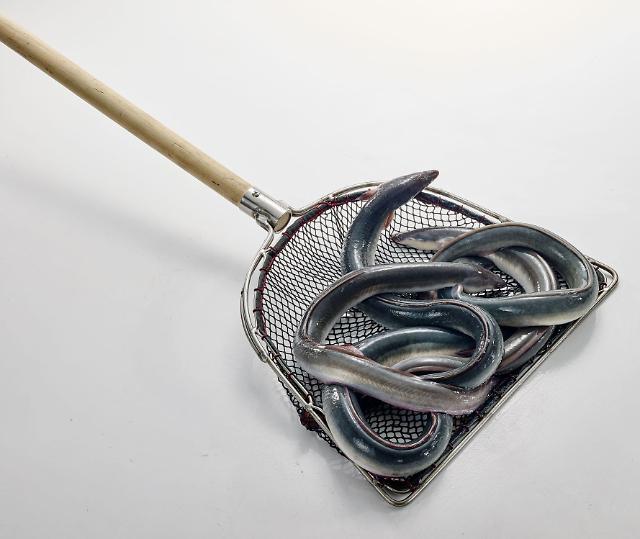
[Courtesy of Lotte Mart]
It may take at least three years for South Korean consumers to enjoy one of their favorite dishes at cheaper prices if a state-led project succeeds in mass-producing freshwater baby eels for fish farms.
The National Fisheries Research and Development Institute said it would launch a joint project involving researchers, government officials and fish farm experts to develop technologies by 2020 on the mass-production of 10,000 baby eels (glass eels) annually.
Last year, the state institute made a breakthrough in technology to transform the leptocephalus into a glass eel capable of being raised in a fish farm. This is the second time in the world to succeed in leptocephalus raising after Japan.
Freshwater eels (Anguilla japonica) are an important part of the food culture in Japan and South Korea, but the price is high because they are considered good for stamina. The summer-time price goes up to 50,000 won (43 US dollars) per kilogram.
Many eel restaurants and fish farms in South Korea have been closed due to the insufficient supply of baby eels and high prices. The eel population has declined drastically due to overfishing, habitat loss and changing conditions in the ocean.
The Japanese eel spawns in the sea but lives parts of its life in freshwater. Adult eels migrate thousands of kilometers to their spawning area in the distance sea in the Pacific Ocean. After hatching, the larvae feed on marine snow, before they metamorphose into the glass eels which enter the estuaries and headwaters of rivers and travel upstream.
Lim Chang-won = cwlim34@ajunews.com
Copyright ⓒ Aju Press All rights reserved.



